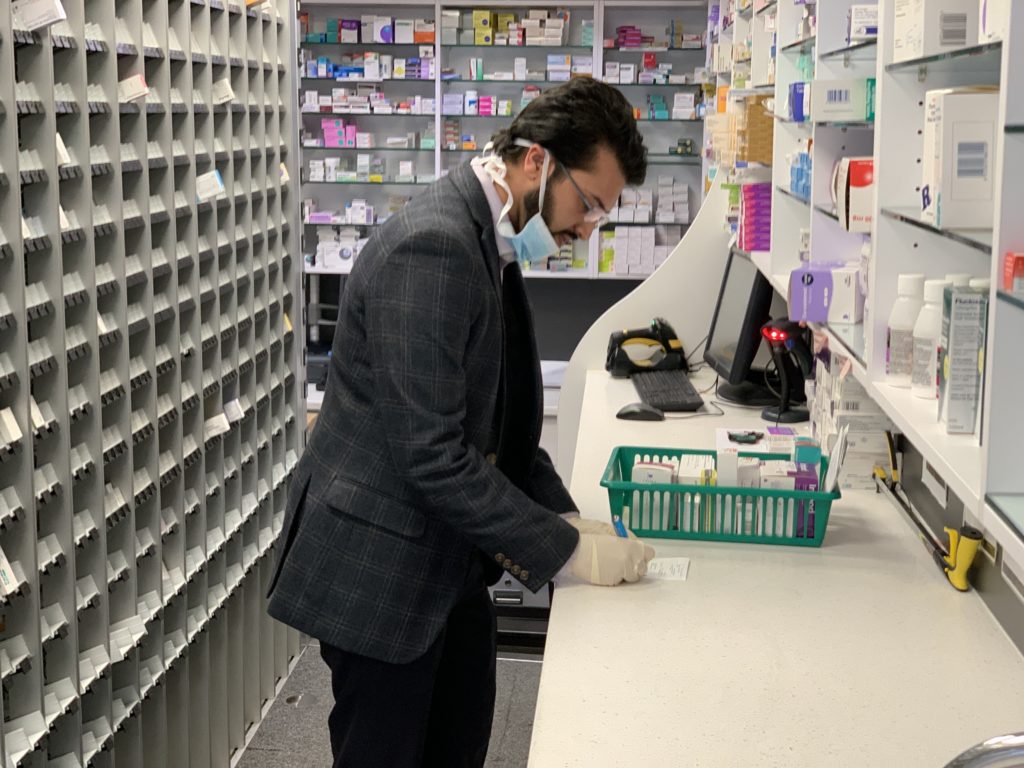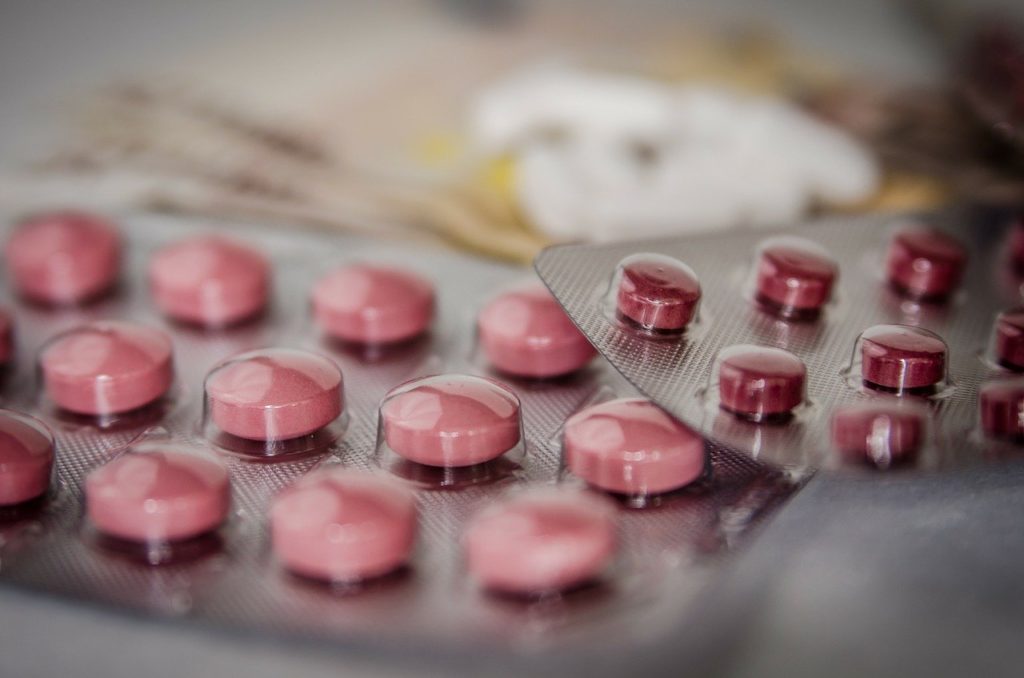Anser Zafar, Pharmacist

“I solemnly pledge that I shall always be ready to sacrifice my life, wealth, time and honour for the sake of my faith, country and nation.”
It is this pledge that Ahmadi Muslims swear on innumerable counts throughout their lives. This is enshrined on the hearts of every Ahmadi Muslim: children, women, men, the young and the elderly all make this promise. It is this pledge that gives birth to the sacrifices that are made by Ahmadi Muslims throughout the world.
The Promised Messiah, peace be upon him, on an occasion is said to have recommended the study of “tibb” (medicine) as an alley of professionalism. Today, scores of Ahmadi Muslims pursue careers in the various fields of medical sciences. Among these is the ever-growing world of pharmacy.
With various streams of specialism available, including hospital, industry and community, every pharmacist is a specialist in the knowledge of drugs, their effect on the human body and essentially the knowledge of medicinal and chemical compatibility within individuals.
As community pharmacists, we encounter many and various types of individuals on a regular basis. We aid in managing long term health conditions and work closely with various other health care professionals including doctors, nurses, dieticians and physiotherapists for best patient outcomes. We understand the everyday challenges faced by the sick.
As the current Covid-19 pandemic increased in its scale and people began to panic, the government’s initial response was to “flatten the curve” and so they started shutting down doctors’ surgeries. Tele-consultations were initiated where GPs would speak to patients over the phone and reach clinical decisions without seeing them. This was a good first step as doctors would see dozens of patients with various ailments in a day. If a single one of them was positive for Covid-19, then not only would a vital member of the NHS contract this condition but potentially every other patient seen before the doctor entered isolation.
Conversely, pharmacies were not shut down. So, when patients came to collect prescriptions that were sent electronically, they were reassured by the pharmacy staff that everything would be fine. We advised them that they ought to look after themselves and their loved ones by avoiding unnecessary social interaction with vulnerable groups and frontline workers.
These were still early days; the UK government had not begun its policy of lockdown. The workload started increasing. We started seeing inhalers for asthma and COPD management prescribed for patients whom we had never met before. These were precautionary measures as Covid-19 is largely a respiratory disease.
As the days went on, more and more medication and self-care items had become unavailable through standard procurement techniques. Among them were various types of life-saving inhalers, hand sanitising gels and foams, soap and toilet paper. A reason for this is said to be over-buying, rather than an under supply. We now find supermarkets with empty shelves and the elderly and vulnerable unable to access basic items.
As lifesaving medication has become unavailable on the market, pharmacists are working more closely than ever with doctors to find alternatives for patients. Changing a six-year-old child’s steroid inhaler, used for asthma, from one medicine to another requires multiple clinical considerations, but it is something that is now required.
As the lockdown came into play in the UK, our telephone lines became busier, delivery of medication became even more pertinent and has now become indiscriminate. Liaising with other healthcare professionals has now become even more of a necessity and working around supply chains impertinently.
The workload increased as more and more members of staff became unwell and took time off, for the sake of not transmitting infections to others. This scene is replicated across the country and so, the General Pharmaceutical Council – the regulatory body of the pharmacy profession in the UK – relaxed its rules on inspections and has allowed pharmacies to close for a few hours a day. Various pharmacies have written emails to pharmacy schools asking for student volunteers – this all to alleviate pressure from an already strained sector.

Despite the lockdown, the footfall of people had increased. An increasing number of patients, young and old, were coming to the pharmacy to see a healthcare professional, to discuss their problems and concerns and seek direct medical advice due to the doctors being seemingly unavailable. This in itself created a breeding ground for disease inside each pharmacy, not only have pharmacists and their staff, all of whom are front-liners, become severely at risk but also other individuals entering a pharmacy were suddenly at risk of contracting a disease. Several individuals with symptoms akin to Covid-19 were told to leave the premises, isolate themselves and contact the NHS and follow the government’s advice.
As humans and the creation of God, we must realise that we have a duty towards other humans; we must look after each other’s health and wellbeing.
If you are sick, please do not visit anybody, please try to stay at home and send a neighbour or a good friend to pick up your medicines. If you need advice from a healthcare professional or reputable information, visit the NHS website or ring your pharmacist or doctor; they will speak to you. It is for this reason that the Prophetsa of Islam said:
إِذَا سَمِعْتُمْ بِالطَّاعُونِ بِأَرْضٍ فَلاَ تَدْخُلُوهَا، وَإِذَا وَقَعَ بِأَرْضٍ وَأَنْتُمْ بِهَا فَلاَ تَخْرُجُوا مِنْهَا
“If you hear of an outbreak of plague in a land, do not enter it; but if the plague breaks out in a place while you are in it, do not leave that place.” (Sahih al-Bukhari, Book of Medicine)
Many of us had other engagements. Some of us were expecting to go on annual leave, some of us were considering shifting sectors, career changes, moving homes and so on. But an Ahmadi Muslim always puts service to their country, service to mankind and humanity at the forefront; all these plans have taken back-burners.
As Huzooraa recently mentioned, it is narrated in Tarikh-e-Ahmadiyyat (Vol. IV, pp. 208-209) that during the outbreak of influenza in 1918:
“Ahmadi Muslim volunteers [which included Hazrat Mirza Bashir Ahmadra] painstakingly toiled night and day, despite great difficulties, and served those in need. In some instances, when volunteers were scarce, Ahmadi volunteers who had fell ill themselves, continued to grit through and serve the ill. They would endure the pain themselves and continue treating others until their illness would cause them to drop; they had sacrificed their own rest and treatment for others.”
This same spirit to serve selflessly can be seen by all medical professions across the board. Ahmadi Muslims are no different; they are serving at the forefront of the pandemic.
It is now every individual’s responsibility to help curb the spread of this disease. This is best done by staying at home, obeying your government’s laws and regulations and heeding the advice of Huzooraa.
Despite the danger of Covid-19, rest assured, we healthcare professionals will stand together to protect you. We will continue fighting in the frontline; we will continue to serve humankind to the best of our ability. Despite the increased workload, despite the strains and despite the pressures, we pledge to put service to mankind and our nation first.
Many of us have taken on roles beyond what we would have imagined ourselves doing in this unprecedented time. Ahmadi Muslim pharmacists in the other sectors are also dealing with Covid-19 patients. Many are in direct contact with them in intensive care wards, aiding their treatment and recovery. Many of our colleagues are strained and working on the limit of their competence.
A number of us have offered our services to numerous local and regional hospitals. Some of us are volunteering time before and after our day-time job to utilise our skills in the spirit of serving humanity and alleviating pressures from our colleagues. This desire to serve mankind at this critical period of history is all but a reflection of the desire of the Promised Messiahas, who said, “My object, my wish and my desire is serving humanity. It is my job, my faith, my inspiration and my way”.
The Holy Prophetsa was once asked, “O Messenger of Allah, should we make use of medical treatment?” He replied by saying, “Make use of medical treatment, for Allah has not made a disease without appointing a remedy for it, with the exception of one disease, namely old age.”(Sunan Abi Dawood, Book of Medicine)
We pray that whatever happens, happens for the best and that mankind emerges both physically and spiritually fit from this pandemic. We pray that the sacrifices made by healthcare professionals at large is accepted by God Almighty. May we heed the words of our beloved Imamaa and continue to stand true and loyal to the pledges we swear as Ahmadi Muslims and as pharmacists. Amin

